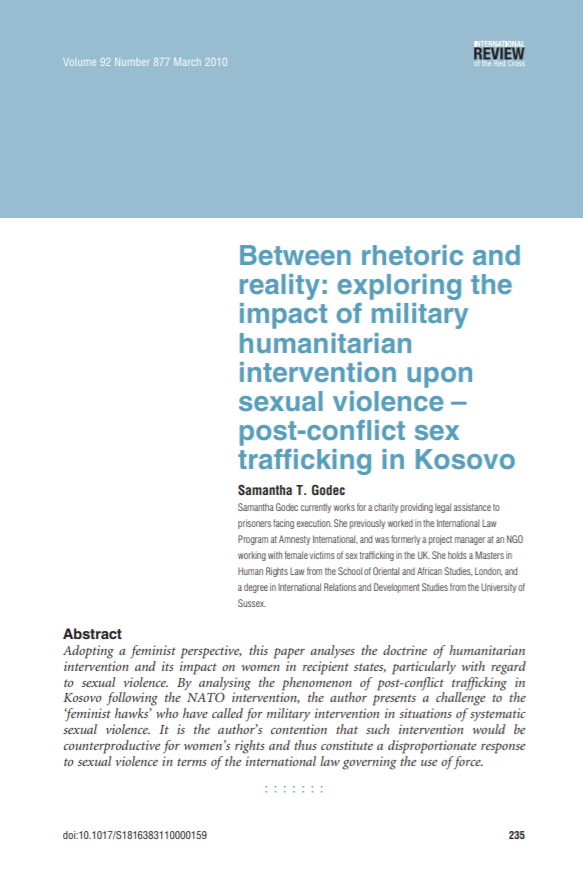Modern Slavery and Trafficking in Conflict: The UN's Response

Violent conflict greatly increases the vulnerability of civilian populations to human trafficking and slavery. Refugees and other migrants displaced by conflict are particularly vulnerable to this extreme form of exploitation. As the international community struggles to respond to increasing levels of conflict and the consequent, unprecedented, scale of human flight, it is imperative that the United Nations, Member States and all stakeholders work together to ensure that the world’s most vulnerable are protected from trafficking in and beyond conflict. While the anti-slavery movement has begun to make significant progress in recent years, the response is yet nowhere near equal to the challenge. But the focus of UN and world leaders on modern slavery does provide a foundation to build upon. In July 2016, UK Prime Minister Theresa May said eliminating modern slavery is “the great human rights issue of our time.”Leaders from U.S. President Barack Obama to Pope Francis have stressed the moral imperative to combat human trafficking and end slavery. And in December 2015, the United Nations held its first thematic debate on human trafficking, with a call for the UN SecretaryGeneral to address and prevent trafficking in conflict.
The inclusion of modern slavery and human trafficking at the highest levels of the international agenda is a welcome development, as is the surge of activity among UN agencies and Member States to tackle these crimes. However, despite growing awareness of modern slavery, the UN’s response has been fragmented and uncoordinated. There is a real danger that the anti-slavery momentum built over the past year will be squandered without high level UN-leadership, much greater Member State engagement, and focussed interagency cooperation. This report assesses the UN’s role in addressing trafficking in conflict and provides recommendations for strengthening its efforts.
Country
Worldwide
Region
Worldwide
Year
2016
Topics








